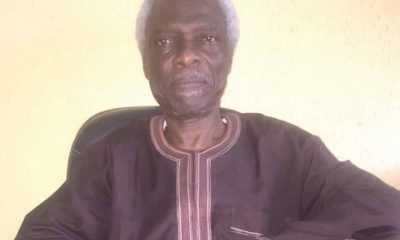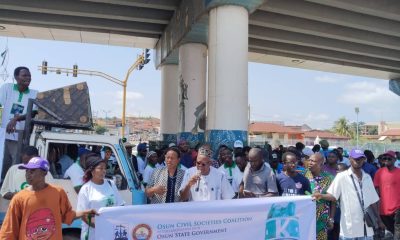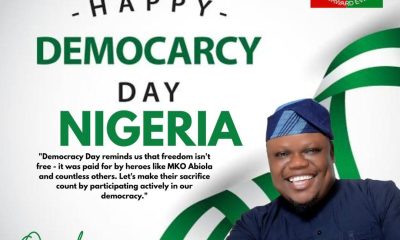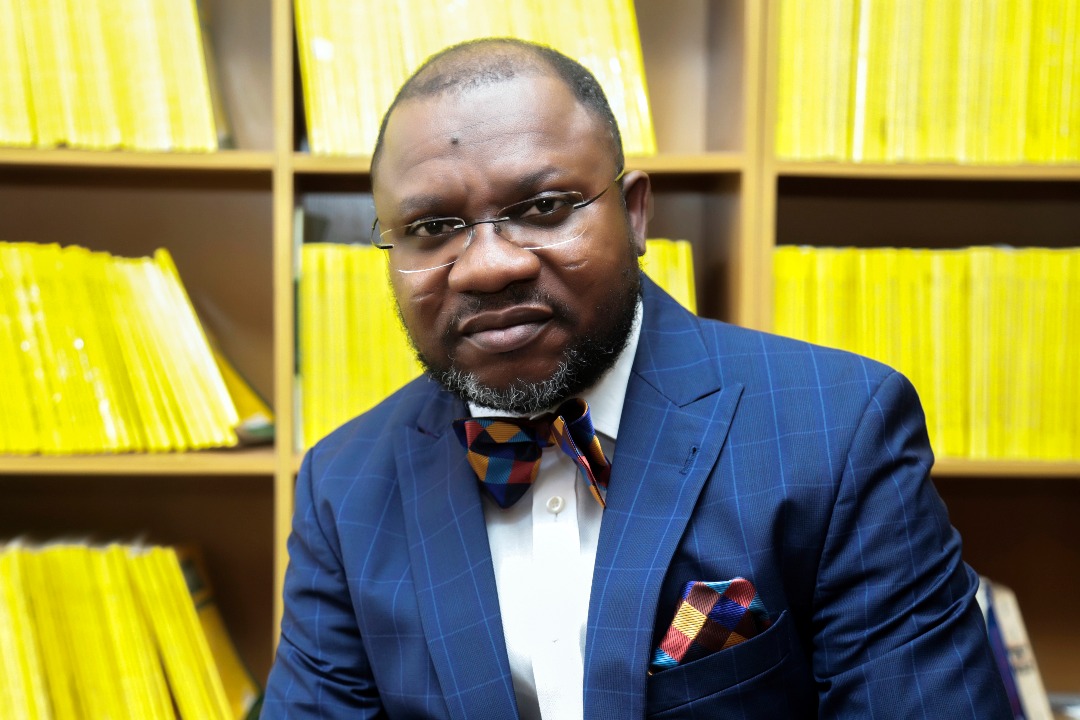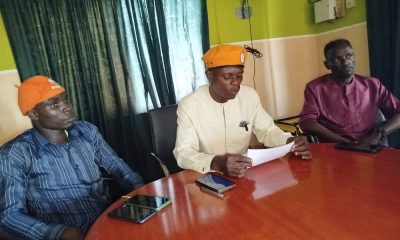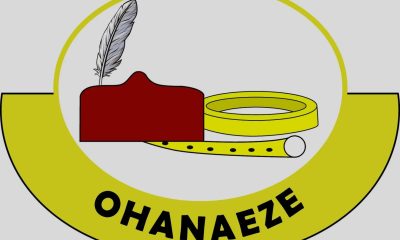News
June 12 Annulment Will Haunt Me For Life – IBB
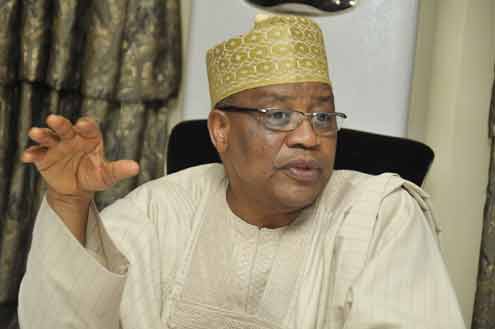
Shola Oshunkeye
It would be a gross understatement if you describe him as a chip off the old block. Save for his height-about seven feet, and broad frame, he is a perfect replica of his father, General Ibrahim Babangida, in appearance, character and intellect. Like his old man, he is deeply intelligent, yet witty; very introspective, yet genial; above all, a gentleman who, according to his friends, is generous with his time, and, perhaps, his resources.
Over the past 20 years, Muhammad, a security consultant, has made his mark in diverse business endeavours like banking, real estate, education, and oil and gas. He has also served on the boards of Unity Bank and NEXIM Bank-where he heads the Committee of the Board on Finance and General Purpose, Credit and Strategy.
A polyglot, and an outdoor adventurist who passionately loves playing polo, basketball and tennis, Muhammad Babangida has also served on the boards of several government and private organizations, both at home and abroad.
Apart from breaking off his father’s shadows, Muhammad, in this interview, spoke about the day his world metaphorically collapsed when his mother, Dr. Maryam Babangida, succumbed to cancer. He also talked about the scariest day of his life, April 22, 1990, when Major Gideon Orkar led some middle-ranking soldiers and subalterns to attempt to sweep the carpet off his father’s feet at Dodan Barracks, Lagos.
The coupists almost got General Babangida and his family, having penetrated his official residence and broke into his bedroom. But the General escaped through a default route with his family. Muhammad was abroad at the time and had to endure 24 long hours before he could get news about his family. “Those were the longest hours of my life,” he said. “It was the scariest moment of my life.”
Indeed, the coup was one of the bloodiest in Nigeria’s history. Apart from Lt. Col. U.K. Bello, General Babangida’s ADC, who was shot and killed during the coup, Dimka, General Mamman Vatsa, and 40 others were convicted and executed via firing squad.
Muhammad Babangida also told the story you never heard or read anywhere. He recalled that night in June of 1993 when his father made the nationwide radio and television broadcast annulling that year’s presidential election (held on June 12, 1993). General Babangida voided the vote when it was apparent that his friend and candidate of the Social Democratic Party, SDP, Basorun M.K.O. Abiola, was coasting home to a landslide victory.
Young as he was then, Muhammad, said he and his brother, Aminu, asked their father why he cancelled the vote that would have seen his friend rule the country after him. Rejecting the word ‘challenge’, Muhammad recalled that they were in the family’s expansive living room at the Aso Rock Presidential Villa, Abuja, when his father walked in.
“We were in the living room when he had done the recording,” Muhammad recounts. “He came and he said, ‘I just annulled June 12.’ We both looked at each other and we looked at him, and said: why would you do that? And he said ‘you are too young to understand the intrigues of governance.’ And we said, but it is about you and your administration. And he said, ‘well, perhaps, this is something that will haunt me for the rest of my life.’ So, you could see that his hands were tied. He was limited. He couldn’t do what he would have wished to do. And this is probably a story most Nigerians don’t know.” Excerpts:
What does it mean to be the first son of General Ibrahim Babangida?
We thank Almighty Allah, it is a rare privilege, and a great honour for me to have a dad like my father who is highly distinguished. He has taught us so much and I am very privileged to be his son.
I know the name Ibrahim Babangida must have opened a lot doors for you.
We thank Almighty Allah.
But conversely, what burden or burdens does the name bring to you?
Being his first son, there is no doubt there is that weight you have to carry. There is that burden you have to carry as his first son. It is always there. But on a scale, I think the benefits and the privileges outweigh the burdens. And wherever we can help, we are definitely able to come in and help people when the need arises. Overall, we are very privileged to be children of our father.
Can you let me an insight into few of the burdens that you have had to carry as the first son, the heir of the Babangida Family?
I think the first thing that is always in the minds of people when they encounter children of such great Nigerian would always be something like: ‘Ha, these children…’ There is always this preconceived idea of the character of the children, a stereotyping of some sort, which is always wrong. There is the idea of ‘They are spoilt children. They do not have the discipline’, and stuff like that. For us, having to break through that barrier, first, in most cases, is a big challenge. And we know this. And by the time they interact with us, then, they realize we are not that stereotypical tag they put on such children. That is one of burdens we’ve had to overcome. Sometimes, it’s a very big issue for us.
How do you handle it?
Be yourself. Be as natural as possible and that is who you are. That is how we were brought up. We were not brought up to have any air around us, or any immaturity, or lack of respect. That’s how we were brought up. We were brought up very well by our late mother. So, we always carry that with us. And fortunately, after some time, that speaks for us in most cases; and we don’t draw attention to ourselves. We are very quiet, we are very private as much as possible and people begin to have a different impression after encountering us. We thank God.
People generally believe that you people from privileged homes live perpetually under the shadow of your rich or legendary fathers and mothers. People don’t give you credit for your personal achievements. How do you handle that challenge? Or, is it not a challenge?
One of the biggest issues in the society is that people are not ready to look deeper than what is on the surface. On the surface it appears, like you narrated, that we are just here; we are privileged children; and we don’t need to do anything. Then again, you remember that the shadow of our father is so large and we, as children, are trying to create our own shadows somewhere else. Somehow it’s quite difficult because these are people who have been in the thick of things for, maybe, 40 years of this nation, whether at the level of the army, or at the national level where he was president, and so on. Trying to break that has been a problem, but we know that at our own individual levels we are doing so much. At our own level, we have our own companies; we have our responsibilities that we are doing. And we appreciate the fact that his image is larger than we can imagine. Obviously, his name always opens doors. Like I said, we are very privileged and we thank God.
What is the scariest moment of your life as the heir of General Babangida?
I think there are a few. But the one that scared me, and that I would remember most was the attempted coup of 1990; the Major Gideon Orkar coup. I was away and the family was in Lagos. I was out of the country at that time. So, you can imagine not being there when all this was going. You are able to have information. You are not able to make contact with your parents; your family. And you are just in a foreign land; totally on your own. Many thoughts were just racing through my mind at that time. And the fact that I was not able to make contact with them for at least 24 hours created a lot of panic and anxiety in me. That remains, perhaps, the most serious moment of my life. Those were the longest 24 hours of my life. They were the most anxious. That remains one of the scariest moments in my life.
How do you feel when people say your father is a living legend? Or, when some people, in some quarters, would say, your father would have been a perfect President for Nigeria but this and that. Again, how do you feel when people talk about issues like corruption and they say your father government created the process that fuelled corruption? How do you react to that? That is one. When people also vilify him for June 12, 1993, how do you feel? Do those things haunt you?
For me, the first thing that I would look at in relation to this topic is the human nature. First of all, as human beings we are not perfect. We are bound to make mistakes; and then society, no matter how good you are, no matter how well you think you have done, in governance or leading people, there would always be a section somewhere who would always have something negative to say about you irrespective of whatever type of position, whether it’s the presidency, the head of department, or whatever the case may be. That is society. And for me, my dad was able to administer the country for eight years; no doubt, he made a series of mistakes. But he has also made some very positive impact on Nigeria.
So, when people say those negative things, I would always bring out the positive. I would always let them realize that no human being is perfect. There is no Head of State or President in the history of this country that has been able to exit with a perfect record. There is nobody. And it will continue as such. You just come, do what you can do, play your part and move on. The next person will come and play his own part. Nobody can get all aspects of this nation in such a perfect order, it is not possible. So, I take with a pinch of salt. When I was much younger, it used to hurt me.
It used to hurt you?
Yes, I was very disturbed about it. But one thing he always said was that we should develop a thick skin to such criticism, as long as the intent was not evil or negative, or it was not malicious. Then, leave the rest. Do your part, give them the other side of the argument. Like June 12, we all understood that it would be one of the biggest things that would remain as something that would haunt us for the rest of our lives. We understand that. But I am sure deep down, my dad would have passed on the mantle of leadership to his friend. There is no doubt about that.
To Basorun M.K.O Abiola?
Yes. Like he said to me when I encountered him (on the issue). I said: why did you do this? He said, ‘Well, it’s part of governance that you don’t understand’ as a young boy at that time. So, to me, mistakes have happened, (what matters) is how you rise above those mistakes. We have learnt as a country. There have been tremendous benefits for some group of people who benefitted from that mistake, who are in the helm of affairs currently today. Because it was from that, that you saw the Southwest become so strong and is now developed to a point whereby their leader was able to create a bloc for the region where most of his protégés were in leadership positions at that time. And these were people who benefitted from the annulment of June 12.
So, there was always the positive side of that annulment which gave rise to what we are saying today. In as much as it was a painful experience, the nation has, I think, grown out of that by now; and we have mended fences from that hurt. The president now has been able to recognize the family, he has been able to cool the tempers, and we hope from that, we should just be able to move on. That is just my position.
The day you challenged your father on June 12, what was his reaction?
(Cuts in) I didn’t challenge him. He came to us, me and my brother, Aminu.
Aminu?
Yes. We were at the (Aso Rock Presidential) Villa at the time. We were in the living room when he had done the recording. He came and he said, ‘I just annulled June 12.’ We both looked at each other and we looked at him, and said: why would you do that? And he said ‘you are too young to understand the intrigues of governance.’ And we said, but it is about you and your administration. And he said, ‘well, perhaps, this is something that will haunt me for the rest of my life.’ So, you could see that his hands were tied. He was limited. He couldn’t do what he would have wished to do. And this is probably a story most Nigerians don’t know.
Missing mum?
Mum was a pillar of strength and our rock. It would be 10 years this December that she left us. Honestly, we miss her so dearly every single day because, she made such a huge impact in our lives. She was everything for us. We miss her every single day.
I am so sorry to bring back sad memories, but the day she passed on, what was your world like, and the world of your siblings? Was there an immediate void?
Well, we give solace to the fact that as Muslims, we are always consoled by the fact that all of us have to go through it at one point or the other. There is nothing you can do to change it. But, when she did pass on, we were shattered as a family, as her children, because this was somebody who was in all aspects of our lives. She was always for ever present in our lives and we had to make certain adjustments, obviously. And life has not been that easy since her demise; but we thank God. We give thanks to the Almighty, well-wishers, family and friends for their continued support.
Source: Sun
-

 Crime5 days ago
Crime5 days agoVigilante Reportedly Shoots Colleague Dead In Plateau
-
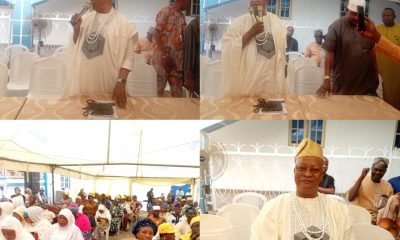
 News3 days ago
News3 days agoRamadan: Osun Cleric Urges Compassion Among Muslims As Asejere Distributes Relief Materials To 537 Beneficiaries
-
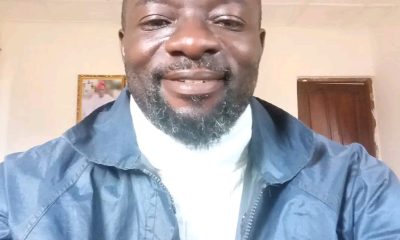
 News2 days ago
News2 days agoOkemesi Dies After Slipping Into Coma
-
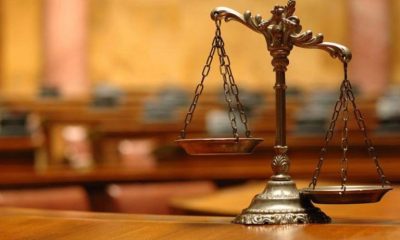
 Crime2 days ago
Crime2 days agoCourt Commits Man To Life Imprisonment For Kidnapping Judge


